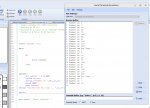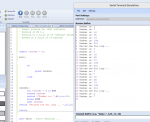Digisapien
Member
I read a lot of answers, and sooo many din't work very well. but I think I did find a way that seems to work okay. It was kind of simple.
random1:
for counter = 1 to 225
random counter
servopos B.5,counter
pause 1000
next counter
return
random1:
for counter = 1 to 225
random counter
servopos B.5,counter
pause 1000
next counter
return


